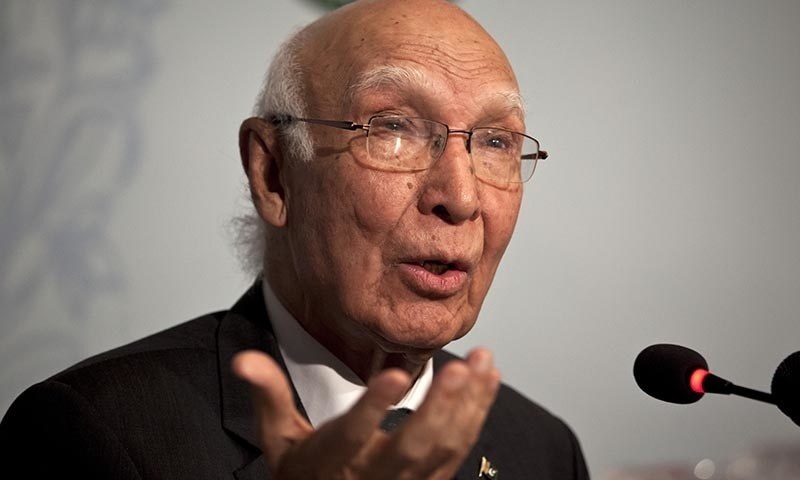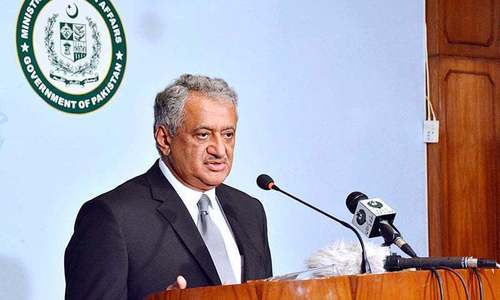Pakistan to question exclusion of Islamic countries from anti-terror alliance

ISLAMABAD: The adviser to prime minister on foreign affairs, Sartaj Aziz, told Senate that the exclusion of some Islamic countries from the Saudi-led 34-nation anti-terror alliance will be discussed at international level.
Answering a question posed by Senate chairman on exclusion of Syria, Iraq and Iran from the Saudi-led alliance, Aziz said on Monday the issue would be discussed in upcoming meetings in the next couple of weeks and also in the upcoming Organisation of Islamic Countries (OIC) summit.
"We have some ideas about the issue which are yet to be discussed,” he added.
Related: Pakistan part of 34-state Islamic military alliance against terrorism, says KSA
Aziz, while winding up a motion moved by Senator Sehar Kamran about success and failure of Pakistan's foreign policy, said the prime objective of country's foreign policy was to protect Pakistan's interests, sovereignty, security and non-interference in other countries' affairs.
He was of the view that Pakistan took principled stance on all issues including those of Middle East and Arab countries.
“On the Syrian war, we supported Syrian sovereignty and territorial integrity while on Yemen issue we showed solidarity with Saudi Arabia and stressed peaceful resolution of the issue through dialogue process,” said the premier's adviser.
Related: UAE minister warns Pakistan of ‘heavy price for ambiguous stand’ on Yemen
Spelling out the top priorities of country's foreign policy,Aziz said that Pakistan believes that a peaceful neighbourhood is essential for economic revival and progress, adding the country's focus was on trade and investment and not aid.
Aziz added that when the PML-N came into power, the prime minister wrote letters to all missions that economic diplomacy was the country's top priority.
Talking about recent terrorists incidents in Afghanistan, he said that it was Afghanistan's internal issue, adding that "Pakistan has no favourite group in Afghanistan and it is committed to durable peace in the neighbouring country".
Aziz claimed that that due to successful foreign policy of Pakistan, Indian government came upon the table to start comprehensive dialogue process with Pakistan on all outstanding issues, as Pakistan has successfully and forcefully presented its case on all international forums.
Related: Pakistan, India agree to restart ‘comprehensive’ dialogue process
He also informed the Senators that due to successful foreign visits of Nawaz Sharif, foreign investment and mega projects have been initiated.
He added that due to the foreign policy pursued by the regime, a country like Russia has promised investment in gas pipeline and the Central Asian Countries have also shown willingness to join China Pakistan Economic Corridor (CPEC) project.













































